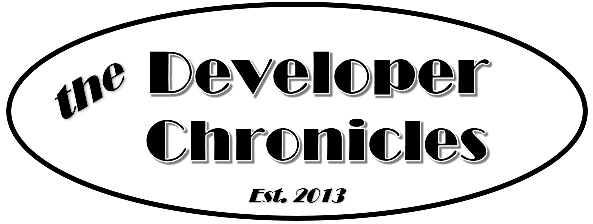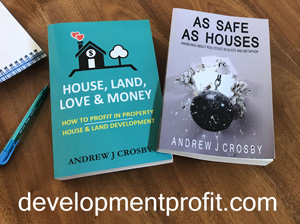I finally relented and decided to take a look at the application of blockchain technology to the real estate industry. If you hadn’t already heard blockchain is the technology behind Bitcoin, and other cryptocurrencies. You know, that volatile alternative to money that goes from USD$10 to $20,000 in about 5 years, back down to $8,000 in 3 weeks and who knows where in the next 24 hours.
Blockchain is really a simple concept. A whole lot of complicated computer terminology does make it difficult to explain though. And there is a real risk that I mess it up completely without stealing an explanation verbatim. So here is one.
“Blockchain is a term used for an encrypted software technology that manages information, specifically the records of transactions. What makes blockchain a transformative concept is that the ledger is distributed, which means that every computer connected to the network has a complete or partial copy of the ledger. Furthermore, the ledger is constantly being updated through the efforts of multiple competing parties (“miners”) working through an established consensus system. It is called blockchain because each ledger update adds a block of data to the previous block, creating an immutable and auditable chain of all transactions that have occurred. Essentially, blockchain is nothing more than a distributed database. However, the result of organizing a ledger system in a distributed manner reveals blockchain’s true innovation: removing the need for a central authority.”[1]
The how it all works is not really that important to our discussion. We will leave that to the teenage computer hackers, mining and hashing their tokens in Reykjavík. What is important, or at least what I am interested in, are the potential applications in real estate.
How can blockchain make real estate (acquisition / development / management / construction / marketing / whatever) more profitable?
Well there are at least five theoretical applications being actively and practically pursued:
- Buying and selling real estate with cryptocurrencies.
- Secure, transparent titles
- Universal property reference
- Property data
- Asset fractionalisation, smart contracts and smart property
1. Buying and selling real estate with cryptocurrencies.
Well this is a pretty obvious application. Buy a building with Bitcoin. Sell your house and receive some Ethereum. Lease your next office in Ripple.[2]
However, real estate values fluctuate a hang of a lot slower than these digital dollars so early adopters be warned. Your bitcoin might buy one house 200m2 house on a beachfront today and only a barn in the middle of nowhere tomorrow. Using a cryptocurrency as a down deposit might also get a little tricky with your bank since they can’t track where the money came from.[3]
2. Secure, transparent Title
To enable fast real estate transactions you need search access to trusted digital Title information. This is not a biggy in NZ as we probably have some of the cleanest titles of any country in the world, and whilst the contents are not 100% digitized yet they are scanned and easily retrieved within minutes from a corruption free government entity. However, in emerging countries this data sits all over the place and often Titles are plagued by disputes and fraud. Even in the U.S of A they have the concept of Title insurance. Companies like Ubitquity and Propy are taking on this challenge.
3 & 4 Universal property references and property data.
There are many transactions in real estate and they all involve lots of information about the real estate being transacted (size, bedrooms, gps etc) and the details of the transaction itself (date, dollars, from who to who). All this information is ripe to be recorded in a distributed blockchain. At the moment many companies are vying to control the information, with clones turning up every other day. It used to cost you money to find sales data in New Zealand but that is being opened up as companies now vie for a bigger (but I am not sure exactly what) prize. For example, think about the additional information you can now find about homes.co.nz, realestate.co.nz and trademe.co.nz when looking to buy or sell a house.
Having this information truly opensource with consistent terminology and definitions and every new transaction continually updating the collective market knowledge seems like a good idea to me.
Now whilst the four points above seem like good ideas and might make things a little easier and faster, nothing really jumps out to me as a big potential profit center. The guys/gals dealing in big data and the ability to mine it to advertise to and influence punters probably disagree. But all I can see happening is everyone getting access to more and more accurate data that is free. So a lot of public good, not sure about private profit.
That takes us to what I find is the most exciting potential application of block chain technology to real estate.
5. Asset fractionalisation, smart contracts and smart property.
Let’s start backwards.
As far as blockchain is concerned a smart property is a property that has smart contracts in place.
A smart contract is an transaction/agreement where every clause and condition is digitized. Through the use of algorithms and a little bit of logical artificial intelligence the transaction can be looked at in various ways based on the wording in every clause. For example, on its impact on property cashflow. Think of the term in a commercial lease agreeing to a rent rise at CPI in 3 years time. The algorithms figure out what to do in three years time and do the cashflow itself, find what CPI is (from another database), adjust the financial records and start automatically deducting the increase every month from the tenants bank account. The landlord, bank and tenant all operate via the blockchain and all information is open and transparently available within the blockchain for data aggregation (but the individual terms are still commercially secure) .
With enough (every) property using smart contracts then the AI can get a lot more serious. It is conceivable enough data can be collected and processed to estimate market rents for a particular property and automatically revise the rental rate on rent review date without both sides getting a valuer and lawyers to argue the point. That would save some money.
Then things get interesting. With complete digitization – and a secure transparent blockchain distribution of asset information – transaction and administration costs (like from a bank, lawyer, accountant) are reduced or eliminated. Throw in AI assessing risks and opportunities then this opens up what I call Asset Fractionalisation (the breakdown of equity or debt investments into micro but still distributable amounts).
Asset fractionalisation enables new investments that previously would have been too cumbersome and costly to implement and manage. One practical example applicable to housing:
Fractionalise the equity in your home. So by the click of the button you can make say 20% of the equity in your home available to other investors to bid on (or it might be at a set price). They could buy 19% or 0.5%. Blockchain data on market values gives real time value estimates of that fraction – so it goes up and down a little like shares. Any debt/security owning to banks or other sources (crowdfunding for example) is included in the equation, as are banks transactions part of the same blockchain. So is all localised data that affects the value of this house (cost/value of an extension, new home blocking the view across the road etc) as well as credit worthiness of the home owner, and rents they receive and expenses incurred. Net rents received could also be automatically distributed as micro dividends to equity holders.
This turns an illiquid asset into a liquid one with incredibly low transaction costs. This is a not like a fractional timeshare investment – whose transaction and marketing costs overinflate the price of the property in the first place. Blockchain makes it all super efficient.
Here’s a thought; the government could use this to enable affordable housing share equity schemes, painlessly.
Yes I am conveniently forgetting all the complications I am sure experts will like to remind me about, and I know my grasp is loose at best on the whole blockchain theory and reality. However, it is one to watch closely, because hidden in all the computer geek mumbo jumbo is some real disruption coming soon – and I think this could have a bigger impact than drones or flying cars!
Cheers
Andrew Crosby
Real estate development books now available via Amazon or direct from publisher in New Zealand. Contact publishing@aenspire.com for special rates. Go to www.developmentprofit.com to view publications available.
References:
[1]https://www.forbes.com/sites/forbesrealestatecouncil/2018/01/12/three-ways-blockchain-could-transform-real-estate-in-2018/2/
https://www.forbes.com/sites/forbesrealestatecouncil/2018/01/12/blockchain-and-real-estate-humanitarianism-or-capitalism
[2] https://www.express.co.uk/finance/city/911636/cryptocurrency-top-10-2018-bitcoin-ethereum-ripple-stellar-litecoin-market-cap
[3] https://www.ft.com/content/40c64992-f606-11e7-88f7-5465a6ce1a00
https://www.ibrea.network/
https://en.wikipedia.org/wiki/Cryptocurrency
http://dci.mit.edu/assets/papers/spielman_thesis.pdf
https://www.inc.com/sonya-mann/real-estate-blockchain.html
https://www2.deloitte.com/content/dam/Deloitte/us/Documents/financial-services/us-fsi-rec-blockchain-in-commercial-real-estate.pdf
https://dev.to/damcosset/blockchain-what-is-mining-2eod

